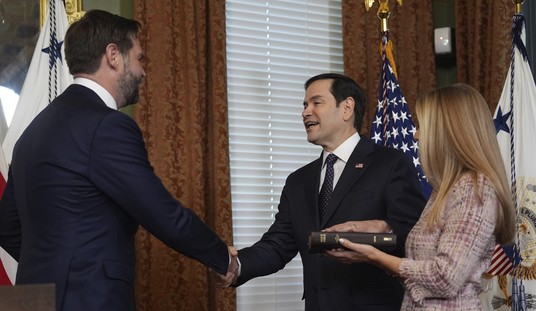Expect some fireworks on border-security and immigration issues in this session of Congress, even apart from the swine-flu outbreak in Mexico. Competing bills have surfaced in the House, one which would demand more resources to building the border fence — and the other that would slow or stop fence construction altogether. It might help first to define exactly what a fence is:
Rep. Duncan Hunter (R-Calif.) introduced legislation to speed up completion of the Mexico-U.S. border fence, mandating an additional 350 miles of fencing by within a year. It’s often reported that over 600 miles of the originally-required 700 miles of fencing have been completed. That’s true, but half of the current fence is designed to stop vehicles, rather than pedestrians. Conservatives contend vehicle fencing–including bollards or poles set several feet apart–do not stop illegal immigrants on foot.
“That figure is misleading because over half the infrastructure along the border consists of vehicle barriers, which do not limit illegal foot traffic,” said Joe Kasper, a spokesman for Hunter.
Besides mandating additional pedestrian fence construction, Hunter’s bill would increase sentencing for weapons smuggling, punish so-called “sanctuary cities,” and require all employers to electronically verify the immigration status of employees.
Meanwhile, Rep. Raul Grijalva (D-Ariz.) has introduced a bill to SLOW construction of the border fence, citing concerns over environmental damage and tribal sovereignty. The bill would require more consultation with state and local governments, public notification, and stricter enforcement of environmental regulations.
More than seven years after 9/11, and more than four years after the 9/11 Commission demanded immediate action to secure America’s borders, the political class still has not finished what should be the most basic of all security protections. When Congress finally demanded and funded construction of a border fence, it assumed that the definition of “fence” was not “gate”. Apparently, the Department of Homeland Security has as much problem understanding the definition of “fence” as it does “threat”, at least when it comes to conservative political debate.
Grijalva’s bill would make it even worse. The federal government has few explicitly Constitutional tasks, but one of them is securing the nation’s borders. In that pursuit, they do not need to worry about their own environmental regulations, an area of government which should be handled by states in most instances anyway. The original bill understood that and waived those regulatory hurdles for a reason, and that reason was that they didn’t want the EPA politicizing the border-security issue.
Tribal sovereignty does not trump the Constitution or the national borders, either. We can debate the wisdom of the reservation system and whether we should continue it or look for a better solution, but it’s entirely irrelevant to border security and federal authority anyway. Grijalva just wants to throw as many roadblocks in front of the fence as possible, and he’s using tribal sovereignty as a red herring.








Join the conversation as a VIP Member